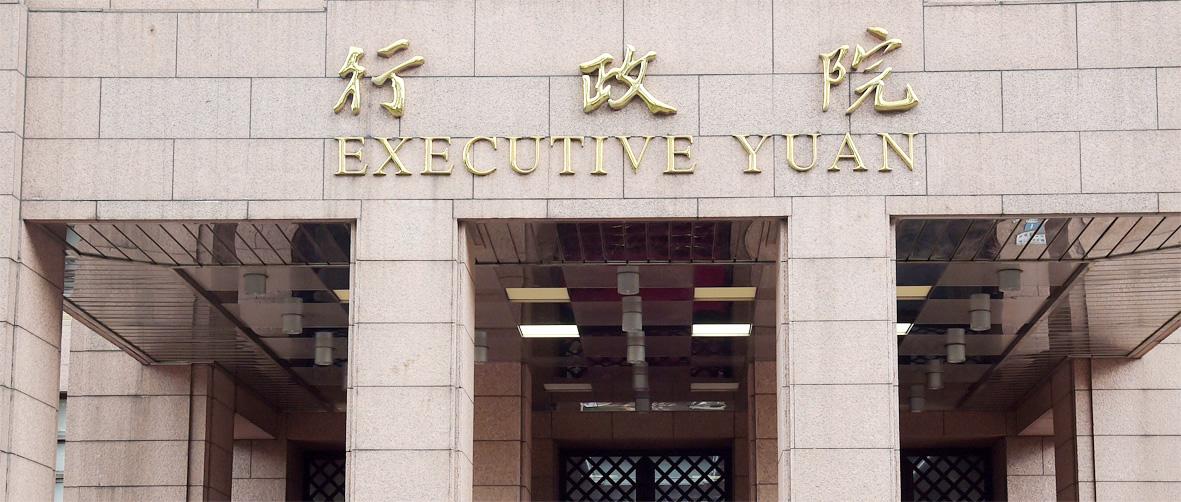The Executive Yuan yesterday approved numerous amendments, including its version of a national human rights action plan, as well as making progress on a long-delayed Executive Yuan reform program.
At a news conference following the weekly Cabinet meeting, Executive Yuan spokesman Lo Ping-cheng (羅秉成) said Premier Su Tseng-chang (蘇貞昌) had told Cabinet members that the proposed “national human rights action plan” is yet another milestone in the history of the nation’s human rights development.
This represents not only the nation’s promise to initiate a human rights convention on its own, but also its willingness to reflect on what is lacking and make changes, Su said.

Photo: CNA
“This is Taiwan’s response to the expectations of Taiwanese and the international community, and we will continue to raise human rights standards in Taiwan,” he added.
Under the action plan, the Executive Yuan said it aims to establish a human rights unit, monitor human rights education and assess outcomes, consolidate laws on equality, bolster right-to-life issues such as teen suicide and traffic fatalities, review policies on housing justice, ensure the effectiveness of climate change legislation, improve laws on digital gender harassment, and codify asylum protocols into law and clarify application procedures.
The action plan would provide overarching guidelines on how the nation could live up to the UN International Covenant on Civil and Political Rights and the UN International Covenant on Economic, Social and Cultural Rights, the Ministry of Justice added.
On Dec. 10, 2009, Taiwan adopted two international human rights treaties, which form the basis for establishing a human rights reporting system, and in April 2012, presented its first national human rights report.
The Executive Yuan yesterday made progress on a long-delayed reform program by approving an organic act for the Executive Yuan, as well as acts for six other government branches.
The Executive Yuan’s proposed act would upgrade the Environmental Protection Administration to a ministry of environmental protection, which would oversee three new agencies: a climate change agency, a resource recycling agency and an environment management agency.
The Poisons and Chemicals Bureau would become a chemicals management agency, while the Environmental Inspection Office and the Environment Protection Staff Training Office would be combined into a national environment research institute.
The Ministry of the Interior would oversee a national land management division, which would administer national land planning and urban development, while national park affairs would be placed under a national park agency.
The Ministry of Economic Affairs would establish a commercial development agency, while the Bureau of Mining and the Central Geological Survey would be merged into a mining management and geological survey center.
The Council of Agriculture would be upgraded to a ministry, while the Forestry Bureau and the Veterans Affairs Council’s Forest Conservation and Management Administration would be merged into a forestry and natural conservation agency.
Under the Ministry of Transportation and Communications, the Tourism Bureau and the Central Weather Bureau would be upgraded to agencies.
The Executive Yuan’s proposal is to be sent to the Legislative Yuan for review.

Taipei, New Taipei City, Keelung and Taoyuan would issue a decision at 8pm on whether to cancel work and school tomorrow due to forecasted heavy rain, Keelung Mayor Hsieh Kuo-liang (謝國樑) said today. Hsieh told reporters that absent some pressing reason, the four northern cities would announce the decision jointly at 8pm. Keelung is expected to receive between 300mm and 490mm of rain in the period from 2pm today through 2pm tomorrow, Central Weather Administration data showed. Keelung City Government regulations stipulate that school and work can be canceled if rain totals in mountainous or low-elevation areas are forecast to exceed 350mm in

EVA Airways president Sun Chia-ming (孫嘉明) and other senior executives yesterday bowed in apology over the death of a flight attendant, saying the company has begun improving its health-reporting, review and work coordination mechanisms. “We promise to handle this matter with the utmost responsibility to ensure safer and healthier working conditions for all EVA Air employees,” Sun said. The flight attendant, a woman surnamed Sun (孫), died on Friday last week of undisclosed causes shortly after returning from a work assignment in Milan, Italy, the airline said. Chinese-language media reported that the woman fell ill working on a Taipei-to-Milan flight on Sept. 22

COUNTERMEASURE: Taiwan was to implement controls for 47 tech products bound for South Africa after the latter downgraded and renamed Taipei’s ‘de facto’ offices The Ministry of Foreign Affairs is still reviewing a new agreement proposed by the South African government last month to regulate the status of reciprocal representative offices, Minister of Foreign Affairs Lin Chia-lung (林佳龍) said yesterday. Asked about the latest developments in a year-long controversy over Taiwan’s de facto representative office in South Africa, Lin during a legislative session said that the ministry was consulting with legal experts on the proposed new agreement. While the new proposal offers Taiwan greater flexibility, the ministry does not find it acceptable, Lin said without elaborating. The ministry is still open to resuming retaliatory measures against South

1.4nm WAFERS: While TSMC is gearing up to expand its overseas production, it would also continue to invest in Taiwan, company chairman and CEO C.C. Wei said Taiwan Semiconductor Manufacturing Co (TSMC) has applied for permission to construct a new plant in the Central Taiwan Science Park (中部科學園區), which it would use for the production of new high-speed wafers, the National Science and Technology Council said yesterday. The council, which supervises three major science parks in Taiwan, confirmed that the Central Taiwan Science Park Bureau had received an application on Friday from TSMC, the world’s largest contract chipmaker, to commence work on the new A14 fab. A14 technology, a 1.4 nanometer (nm) process, is designed to drive artificial intelligence transformation by enabling faster computing and greater power